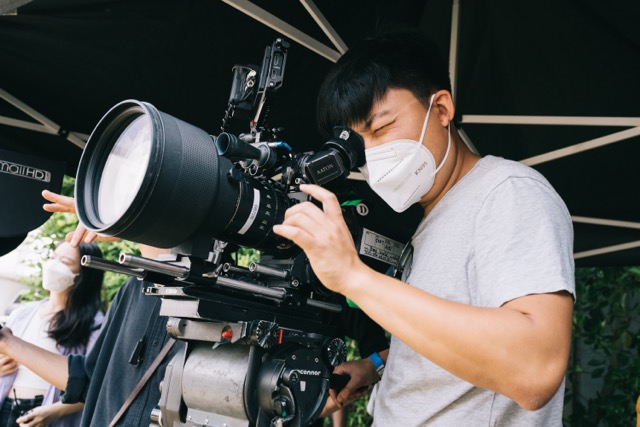
Film is power. There has probably been at least one moment in your life when you’ve felt this power rush off the screen and cause you to reach out to someone special in your life to share the fact that you love them. Maybe they were close enough to touch, maybe you walked into the next room to them, or maybe you had to call from many miles away, but you felt this transfer of emotion that the filmmaker intended for you. Perhaps you felt the agonizing truth that so much time has passed that the expression of your love has no possibility of being received. It’s impossible not to feel these feelings when watching A Quiet Night in Moneterey Park; that’s as much due to the story as it is to the visual appearance of this world presented by cinematographer Mufeng Han and director Charles Xiuzhi Dong. This film reminds us that we all have some moment in our past, and someone from our past whom we’d give almost anything to be with, even if only for a moment. The sensorial stimuli take us to this place and Mufeng has manifested a film that is simultaneously unique and yet elicits that common sweet and sorrowful moment we all can accept as a touchstone. Currently in its festival run, A Quiet Night in Moneterey is not to be missed.
The story begins as a sixty-year-old man named Liu (played by actor Yu Lu of Academy Award Winner Woody Allen’s Hollywood Ending and the Sundance Film Festival Award Winning Working Girls) is passing by an abandoned theater. A film poster reminds him of when he was just a boy and went with his parents to see a movie. As he enters this dilapidated theater, his modern world is juxtaposed against that of his childhood self with his parents at a similar theater. When young Liu gets separated from them amongst the crowd in the lobby, an odyssey begins which imparts the most dramatic and meaningful of all human experiences: love, loss, and time.
A Quiet Night in Moneterey is concentrated emotion. The most remarkable achievement of these filmmakers is that they have taken a seemingly mundane experience and made it the crux of an entire life which can resonate with anyone. We all love, we all fear, we all age. In addition to being aesthetically alluring, the visual language created by Mufeng Han for this film is expedient in taking the audience to the specific emotional space that is desired. The plot is as simple as possible; a boy searches for his mother and finds her. The depiction of this journey is stunning. Mufeng describes, “The director and I agreed to follow a slow cinema visual style to shoot this film. We felt the emotion in this film is fluent and slight so we didn’t use equipment that could supply camera movement noticeably. We are trying to use a third party’s view to present this story, a calm and objective frame was my approach to this story. I wanted to use a minimalist visual style and let the film be more observational and less narrative. From the dolly shots to the bounce lighting inside the theater, it was a design that allowed Liu’s mind and emotions to transfer to our audience in a profound way.” As Liu stands alone at the end of the film, the realization is profound. The contribution of this film, that grace it offers, is that by recognizing the preciousness of each moment we have with those we love, we will leave no regrets about it later in life even if we still experience the sorrow. A Quiet Night in Moneterey is a display of masterful filmmaking. Nearly void of any dialogue, this story doesn’t need to rely on exposition because it is built upon a visual means of communication which supersedes mere words.
Writer: Arlen Gann


Be the first to comment on "Mufeng Han Manifest a Masterpiece with A Quiet Night in Monterey Park"